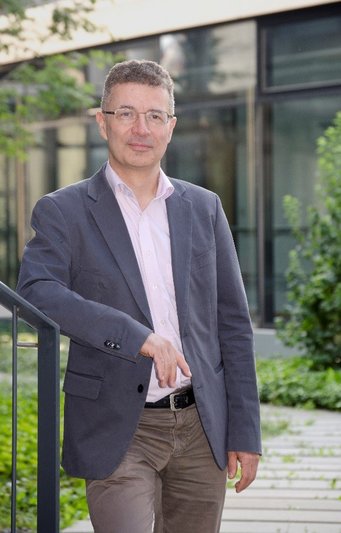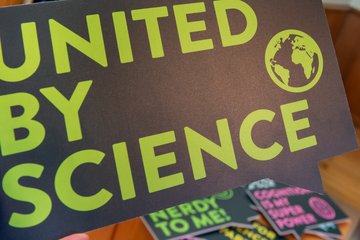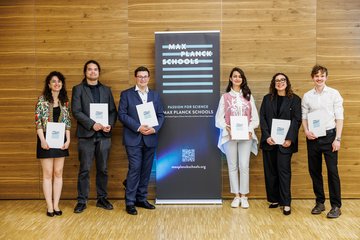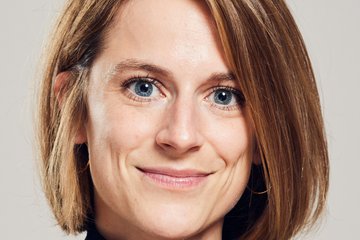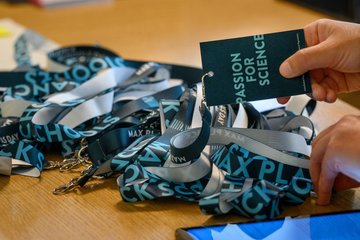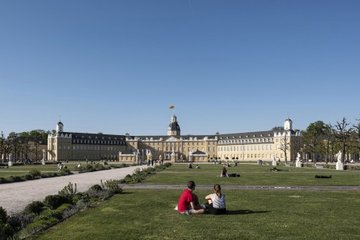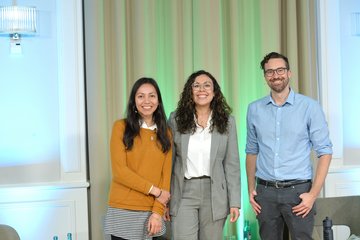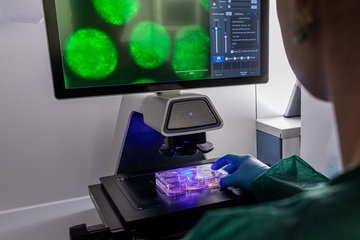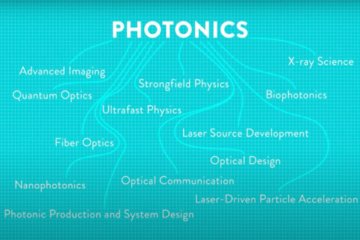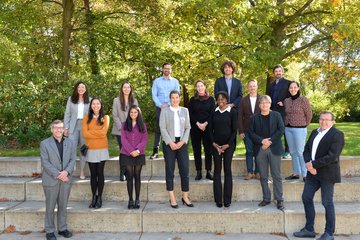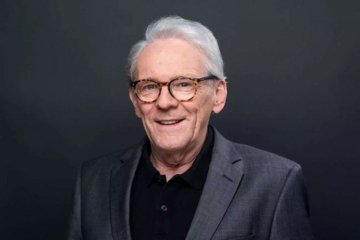“Speaking a common language”
The human cognitive and brain sciences, which are at the heart of the new Max Planck School of Cognition, bring together different disciplines such as psychology, physics, computer science, philosophy, biology and medicine. This makes it all the more important for doctoral students to become familiar with innovative methods and understand each other above and beyond the boundaries of their own discipline, says Arno Villringer, spokesperson of the novel, multidisciplinary graduate school. An interview about the curriculum, the supervision of the students, and exciting research projects.
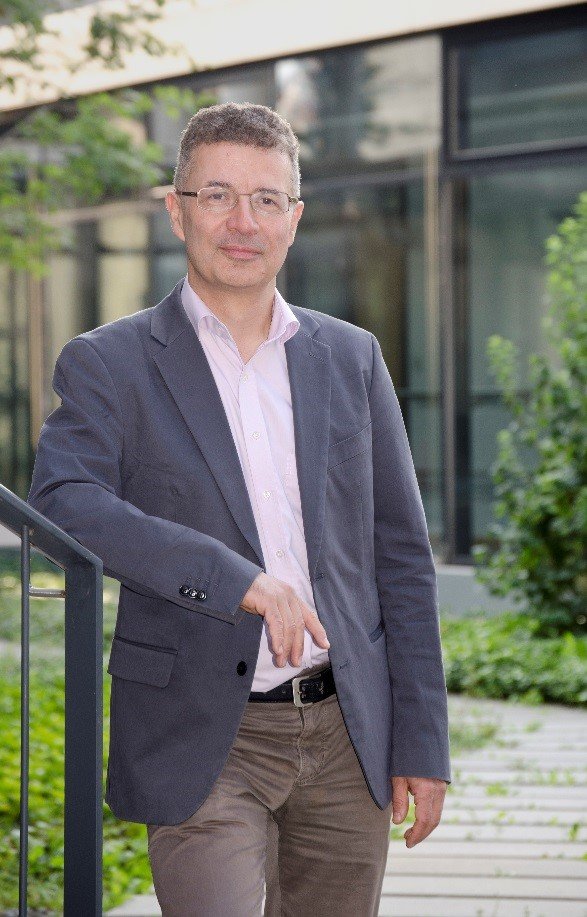
Mr. Villringer, how many students can you accept in the Max Planck School of Cognition?
Between 20 to 30 per year. This means a total of 80 to 120 doctoral students for the four-year training program - a manageable group. The selection procedure for the interdisciplinary training, which can match the very best at the international level, will therefore be very competitive.
The program is due to start in 2019. The first students can apply from autumn 2018 onwards. What can you already say about the curriculum?
The program, which is open to students with a Bachelor’s (fast-track) or Master’s degree, starts with a one-year orientation phase. The focus here is on internships of three to six months’ duration. They will take place at two training locations at least.
The laboratory experiences, which will ideally complement each other, will be supplemented by e-learning and two three-week training courses (Cognition Academies). The objective is for the students to gain a varied insight into a research topic, e.g., by psychologists working in a laboratory focusing on basic anatomical research, or young scientists with a background in computer sciences working in a neurosciences laboratory. The performance of the students is evaluated at the end of the orientation year. If they receive a positive assessment, they can choose a supervisor in a Research Group where they will start their doctoral work.
The first obstacle has been overcome ...
With the start of the second year, the students submit a detailed plan for a research project which they present to the thesis advisory committee. They then begin their work, which is again supplemented by attendance at two two-week academies per year, in Berlin, Leipzig or Düsseldorf, for example. The doctoral students remain in close contact with other students, their supervisors and faculty members, with whom they discuss their results. In the fourth year, they should conclude their doctoral thesis after a further academy and presentation of the results.
The list of scientists who are to supervise the students reads like a ‘Who’s Who” of human cognitive and brain sciences in Germany and Europe. How are the fellows going to collaborate?
The faculty members of the Max Planck School of Cognition regularly exchange ideas, as do the students. They discuss all issues which are relevant to the training program. The motor driving the collaborative endeavours of the institutions are the students themselves as well: when they have gained complementary expertise from their internships at different institutions, these also cooperate more closely and benefit from each other. This is what experience has shown.
I am particularly glad that leading researchers from various institutions will work together in our School: apart from the Max Planck Society, other institutions which have come on board include the Helmholtz Association, the Fraunhofer Gesellschaft and more than ten German universities. The Dutch Max Planck Institute for Psycholinguistics in Nijmegen is also participating with the local University of Radboud. Moreover, we were able to gain University College London as the international partner university in Great Britain.
Philosophers and jurists are also involved.
I am delighted that philosophers such as Michael Pauen from the Berlin School of Mind and Brain, and jurists such as Christoph Engel from the Max Planck Institute on Collective Goods, Bonn, will also contribute their expertise.
What is your task as spokesperson of the Max Planck School?
I have a lot of experience in the organization of graduate schools. In Leipzig, I am the spokesperson for the International Max Planck School on Neuroscience of Communication and moreover at the Berlin School of Mind and Brain. I love to network, inspire people and forge ahead with new ideas in a team.
What is the great attraction for you in all this?
Working with young students also allows me to make headway with my own research. My work as a neurologist benefits significantly from the curiosity of young people who are always querying things and asking probing questions.
What lies at the heart of the Max Planck School of Cognition?
Our new graduate school will focus on cognition research. It will deal with topics from a variety of disciplines such as psychology, physics, computer sciences, philosophy, biology and medicine. The research field is currently going through a phase of rapid development. There is therefore a great demand for scientists who are familiar with the innovative methods and approaches of the different disciplines and who speak a common language.
Which exciting projects do you have?
The research will focus on issues such as: which cognitive processes are bound to language and which facilitate a better understanding of other people? Which genetic mechanisms contribute to individual differences in cognition? How are different forms of learning and decision making organized in living beings and how can they be realized in systems with artificial intelligence?
To find answers to these questions, the students can avail themselves of state of the art equipment, which is among the best in the world. E.g., in Leipzig we have five research-only whole body Magnetic Resonance Imaging (NMR) systems operating at 3 and 7 Tesla including a so called connectome scanner with ultrahigh magnetic field gradients, one of only three instruments of its kind in the whole world. Thanks to its unique gradient strength, it will provide even more detailed information on the networking of the brain in the future. In Jülich and Tübingen, there are 9.4 Tesla scanners, there is world-unique equipment for anatomical studies (Jülich), in several centers there are combined PET-MRI (PET: positron-emission-tomography) and MEG (magnetoencephalography) systems available and there are unique opportunities of doing research with non-human primates, e.g., in Frankfurt. We have leading experts in artificial intelligence on board as well as clinical neurologists and psychiatrists involved in clinical research to give just a few examples (among many more) of opportunities for exciting research.
How do you want to ensure the sense of community between the doctoral students at the different locations?
Young people today naturally communicate via digital platforms and social networks. E-learning is an integral part of any university training. The Max Planck School of Cognition will nevertheless not be a virtual network – I dislike this term intensely – it will be based on regular personal meetings and exchanges of information. This also means that students must be prepared to travel regularly, of course. Together, we are going to think, discuss, learn from each other and spend time outside the laboratories.
Thank you very much for the interview!
The interview was conducted by Barbara Abrell
